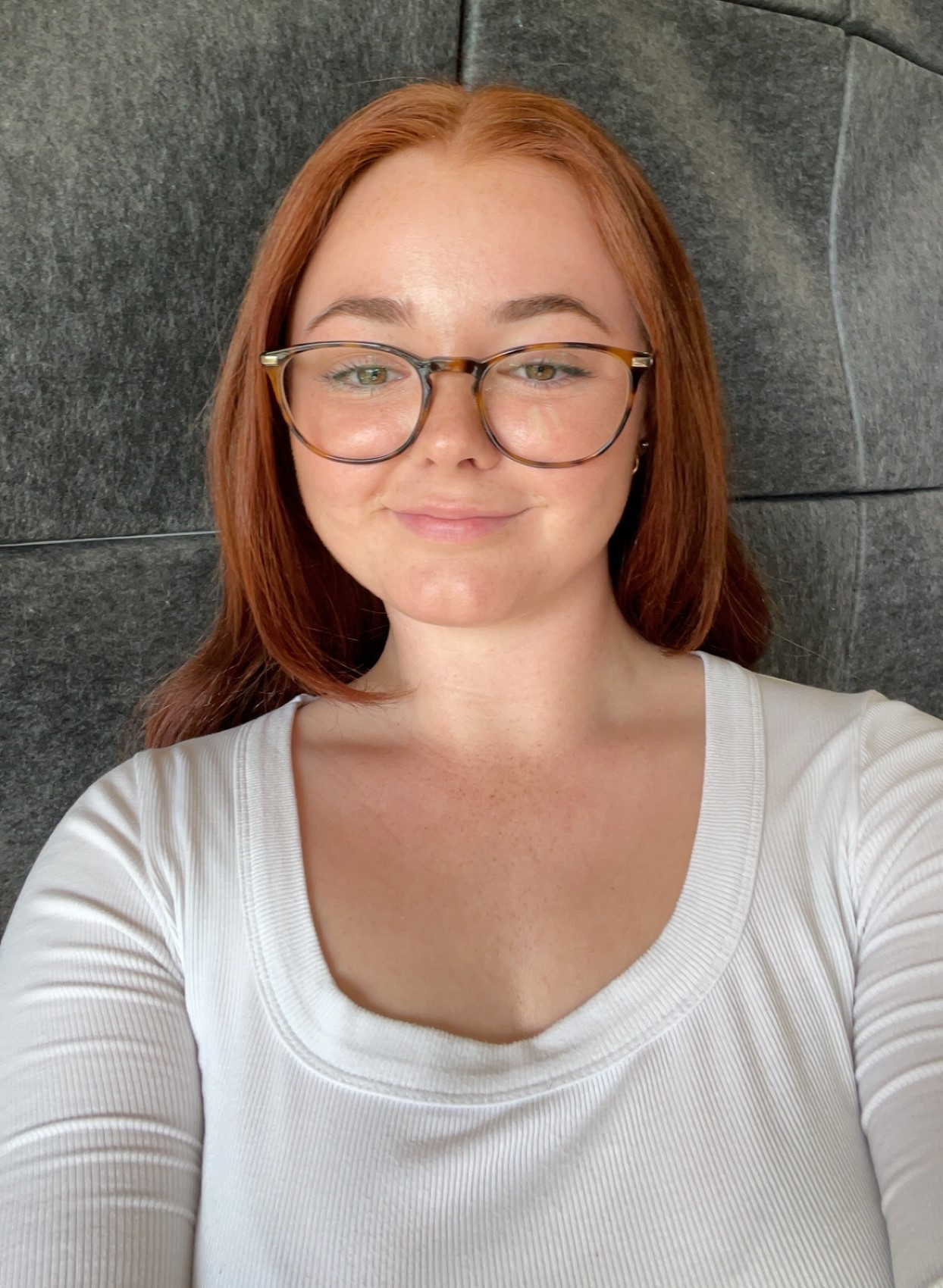NRF Vacation Scholarships 2023
This year the NRF awarded 8 Vacation Scholarships to our latest and brightest young minds!

These scholarships allow students the opportunity to work on real and exciting research projects during their summer break alongside SA’s best researchers in the neurosurgical field. Aiming to gain real-world experience and entice them to pursue a future research career in neuroscience, these recipients spent the summer working on ground-breaking research projects in their chosen areas of interest which include stroke, traumatic brain injury, spinal cord injury and glioblastoma research.
Hear more from the students in the video below:

The University of South Australia Scholarships
NRF Research Vacation Scholarship - UniSA
Stella Russo - More effective therapies are desperately needed for glioblastoma.
‘’In this project, we will examine the effect of deletion of SphK1 and/or SphK2 on glioblastoma proliferation, migration and response to chemotherapy and radiotherapy. Successful outcomes will provide valuable insights into the sphingosine kinases as new therapeutic targets for glioblastoma’’
Supervisor - Prof Stuart Pitson, Molecular Therapeutics, Uni SA

Richard Buttery NRF Glioblastoma Research Vacation Scholarship - Year 3 - UniSA
Samuel Wallis - Evaluating lysosome function in glioblastoma
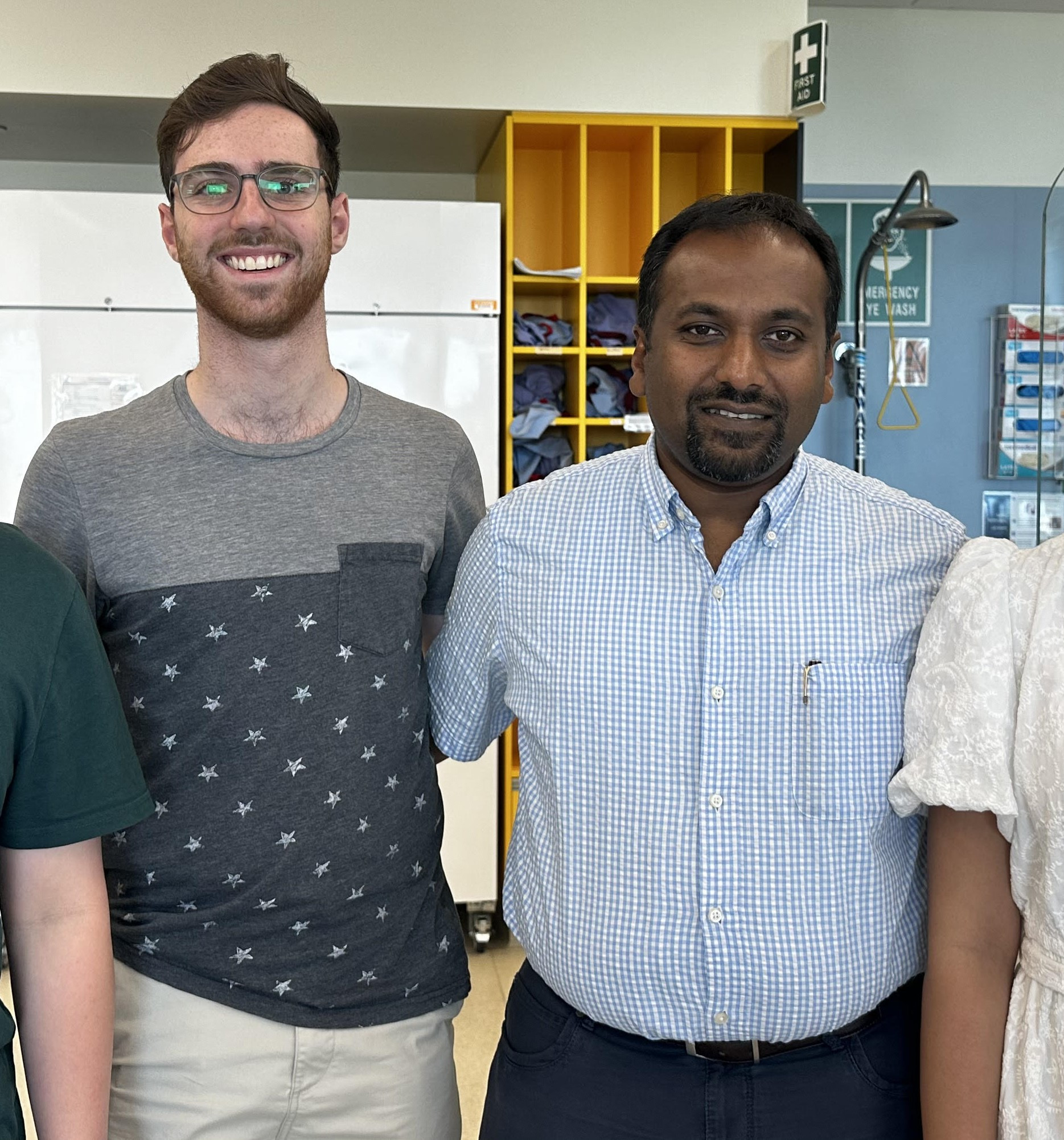
My project is to investigate a potential vulnerability in glioblastoma cells. Glioblastoma cells survive in hypoxic conditions by undergoing ER-phagy, a process where the cells break down sections of the endoplasmic reticulum which are undergoing stress. By inhibiting the cell membrane receptor CD47, this may allow for this process to be disrupted. My project investigates the connection between CD47 and ER-phagy and whether glioblastoma can be treated by a combination of drugs that inhibit CD47 and ER-phagy.
Supervisor - Dr Nirmal Robinson, Cellular-Stress and Immune Response Laboratory, Uni SA
Flinders University
Zeyu Zhang - Revolutionizing Delayed Cerebral Ischemia Risk Prediction with AI
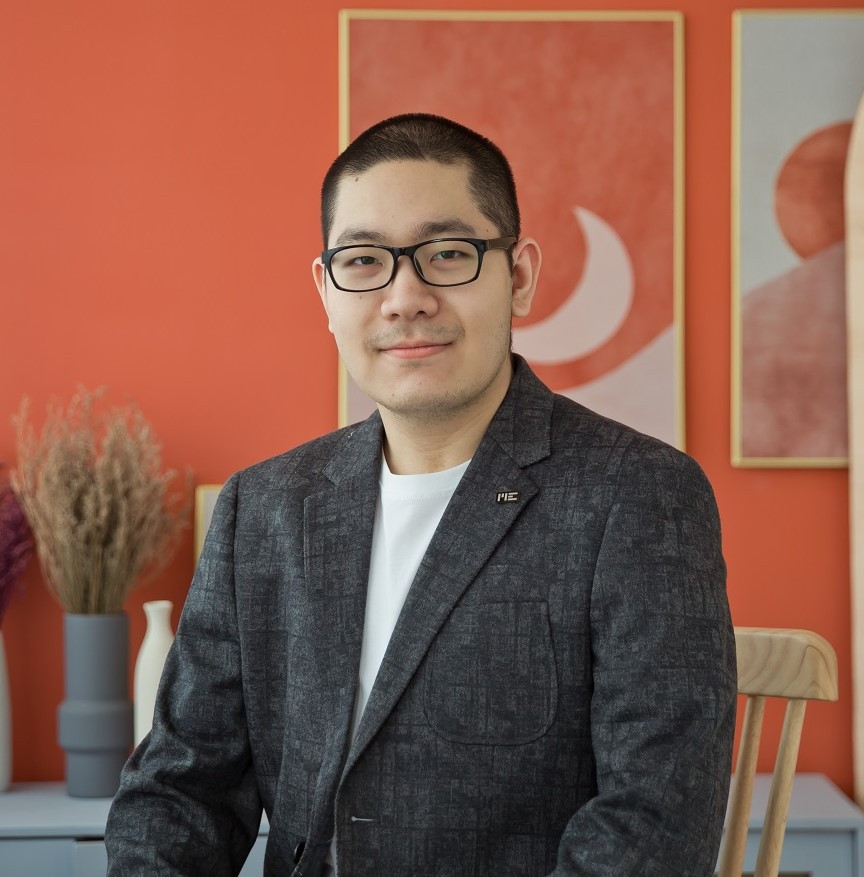
our project, ''DCI Risk Prediction'' seeks to employ state-of-the-art artificial intelligence techniques to revolutionize the assessment and prediction of Delayed Cerebral Ischemia (DCI) following Aneurysmal Subarachnoid Hemorrhage (aSAH). Our primary goal is to employ semantic segmentation techniques in computer vision and deep learning to provide a quantitative and precise assessment of blood distribution and volume, thereby improving the accuracy of DCI risk prediction. Through a series of innovative approaches, we aim to improve the accuracy, objectivity, and comprehensiveness of DCI risk prediction, ultimately benefiting patients and healthcare professionals alike.
Supervisor - Dr Minh-son To, Flinders Health and Medical Research Institute, Flinders University - Stroke
The University of Adelaide Scholarships
Inaugural Tony Walsh TBI Vacation Scholarship - University of Adelaide
Nandana Nair - Introduction to Traumatic Brain Injury Research, Aim: To experience the broad range of activities within the laboratory from behavioural analysis, immunofluorescence and data analysis.
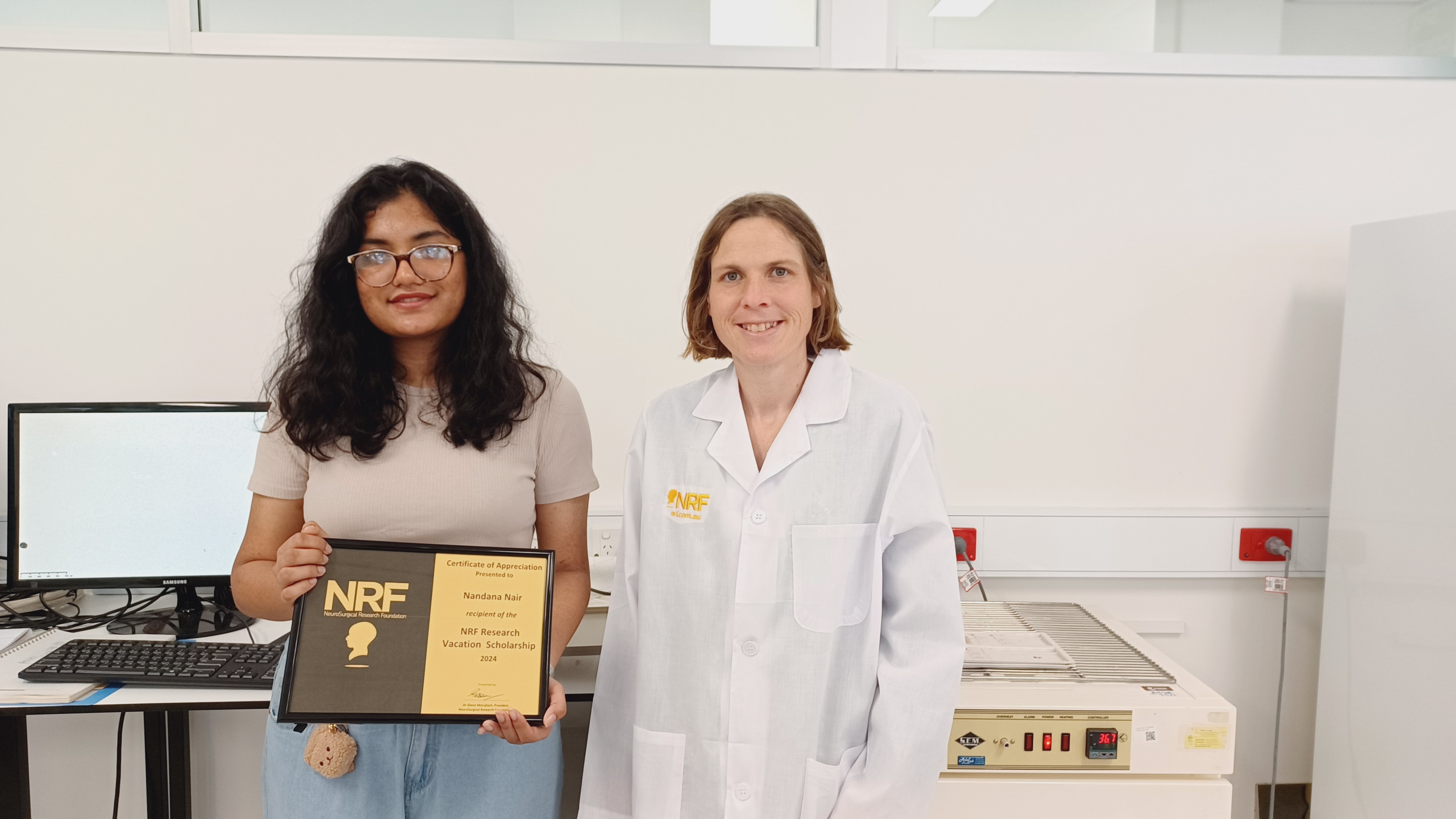
‘’The research is leaned towards evaluating new treatments for head injury to see if they improve outcome by reducing damage within the brain’’
Supervisor - A/Prof Frances Corrigan, Head Injury Laboratory - TBI, School of Biomedicine, University of Adelaide

Anis Mohammad Gadapi - Investigation of predictors of outcome in pre-clinical models of traumatic brain injury.
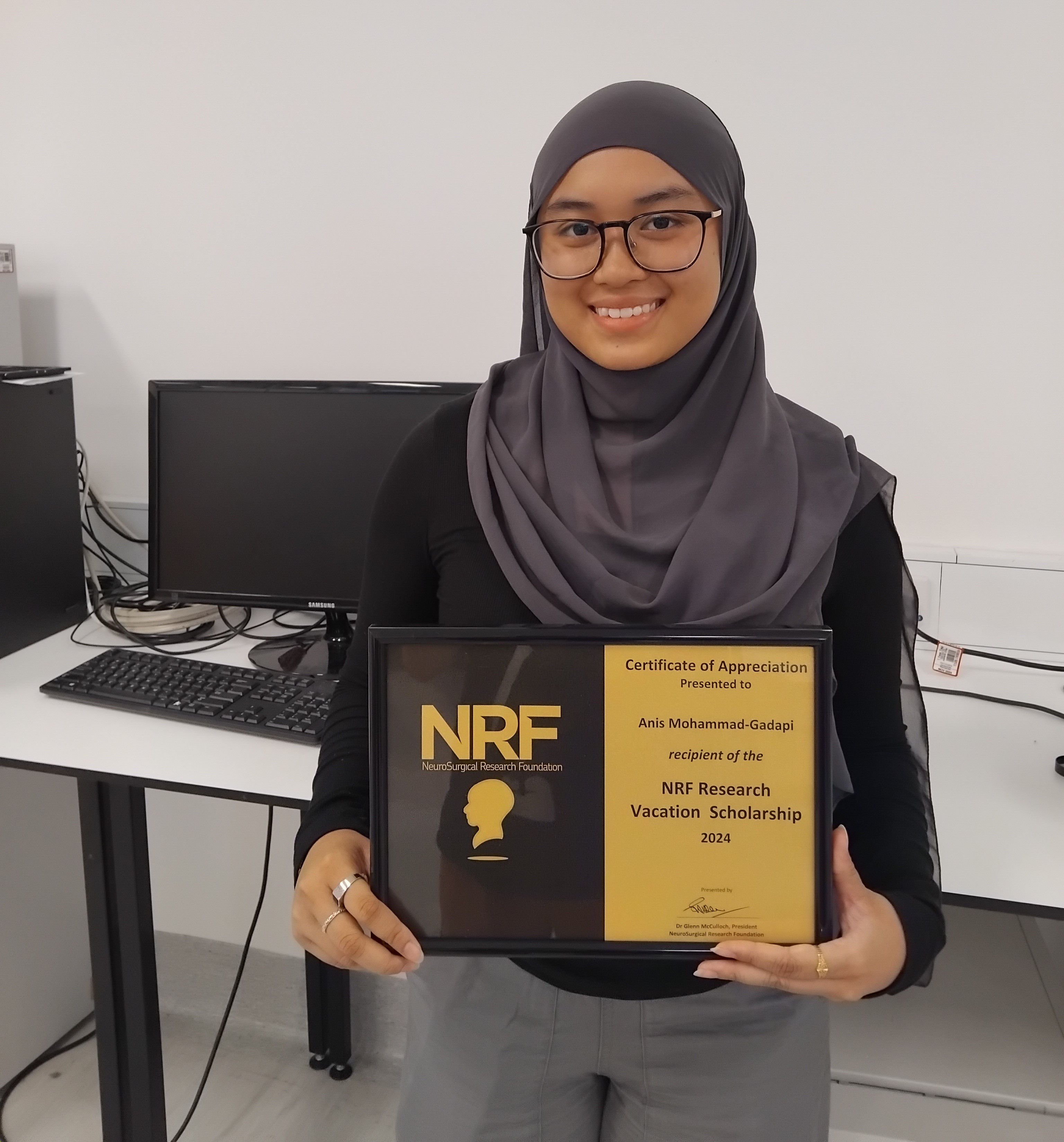
"TBI is the leading cause of morbidity with patients often suffering from consequences such as cognitive deficits, social abnormalities, anxiety, depression, pain and motor dysfunction. There are currently no pharmacological treatments known to improve patient outcomes. Given that these impairments have a significant impact on a patient's quality of life, my research aims to investigate how head injuries interact with underlying risk factors to promote the development of neurodegenerative diseases, as well as investigate novel therapeutics for head injuries in a pediatric model of injury".
Supervisor - A/Prof Frances Corrigan, Head Injury Laboratory - TBI

Alyssa Harris - Introduction to surgical processes, reviewing and analysing behavioural tasks, observation and participation in histological procedures, analysis of histology, statistical analysis of data collected.
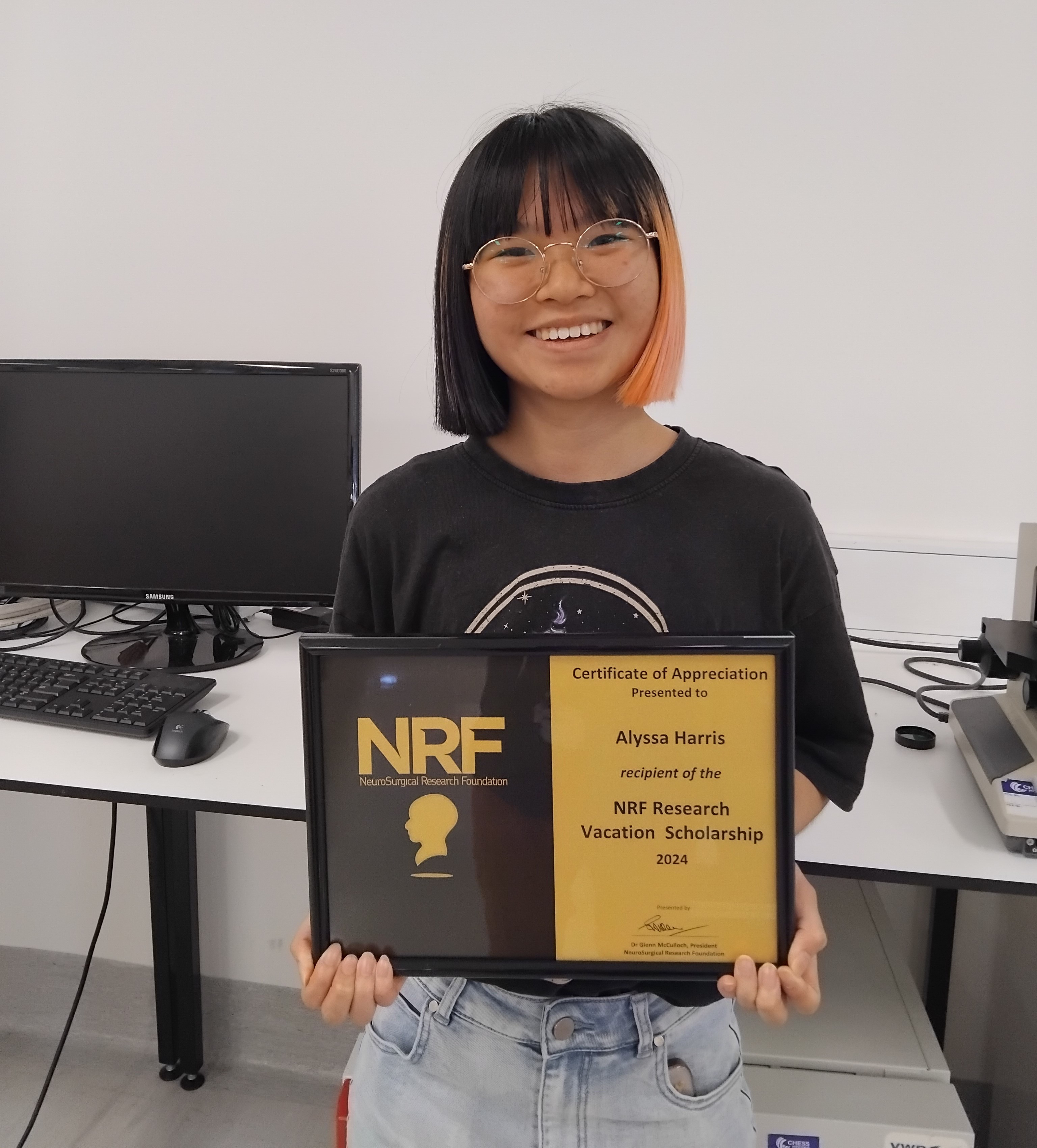
“There is a particular focus on neuroinflammation, oedema and pressure within the acute setting, and also in understanding how these acute processes can influence chronic outcomes such as cognition and neuropathic pain. By evaluating these outcomes we can better understand how SCI affects patients and work towards developing more effective treatments".
Supervisor - Dr Anna Leonard Spinal Cord Injury Research Group - SCI

Rosie Costigan-Dwyer - Exploring the short and long-term consequences of ischaemic stroke: no reflow, neuroinflammation and blood-brain-barrier disruption.
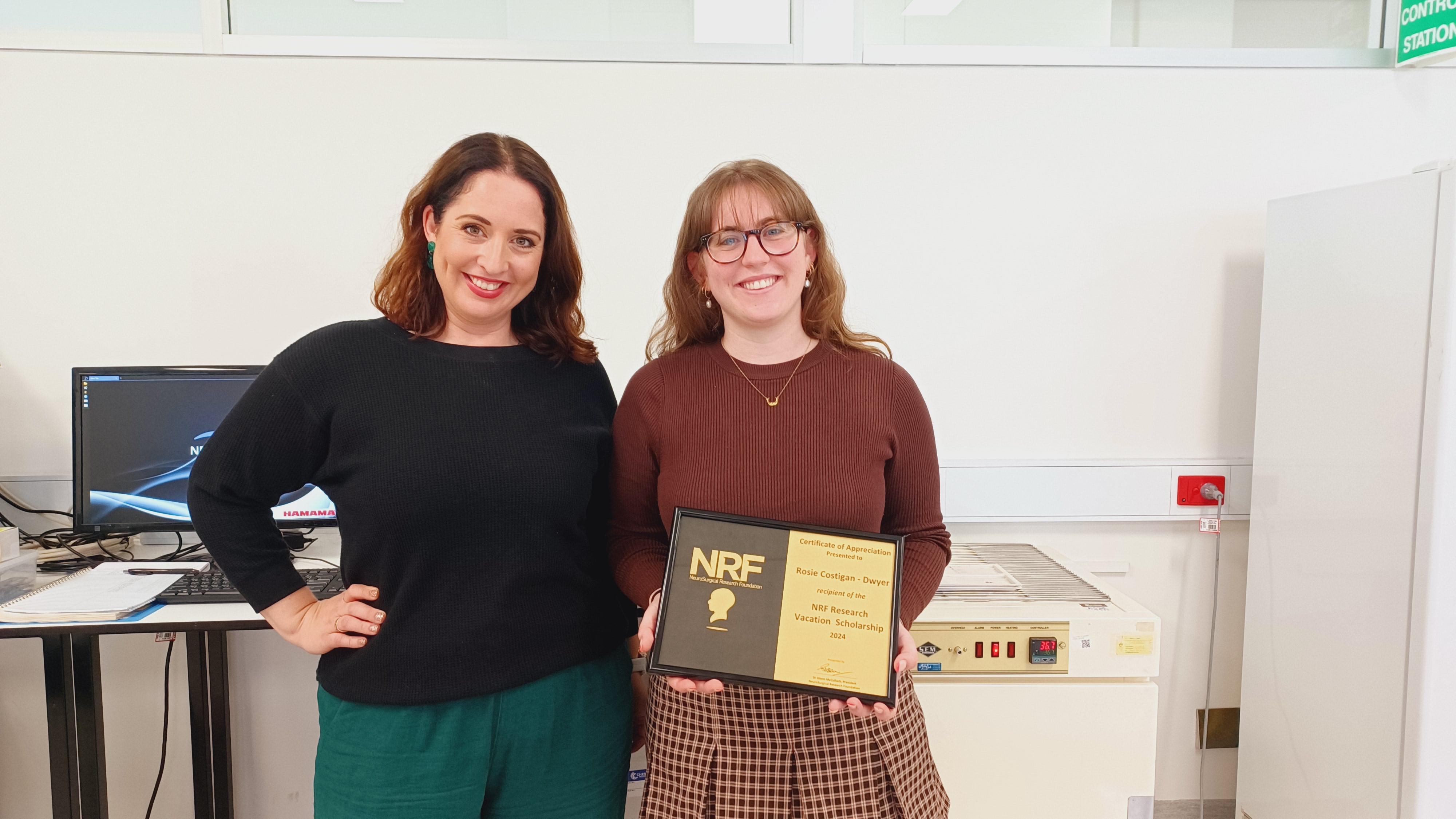
‘’My project aims to explore the long-term timeline of neuroinflammatory and blood brain barrier changes occurring at secondary neurodegeneration (SND) sites post-stroke. By exploring these changes we are hoping to provide insight into the development of targeted therapies that could halt/treat SND post-stroke".
Supervisor - Assoc Prof Renee Turner, Translational Neuropathology Laboratory - Stroke

Samantha Joubert - A volumetric neuroimaging study: Investigating neurodegenerative pathology and brain volume changes in a stroke model.
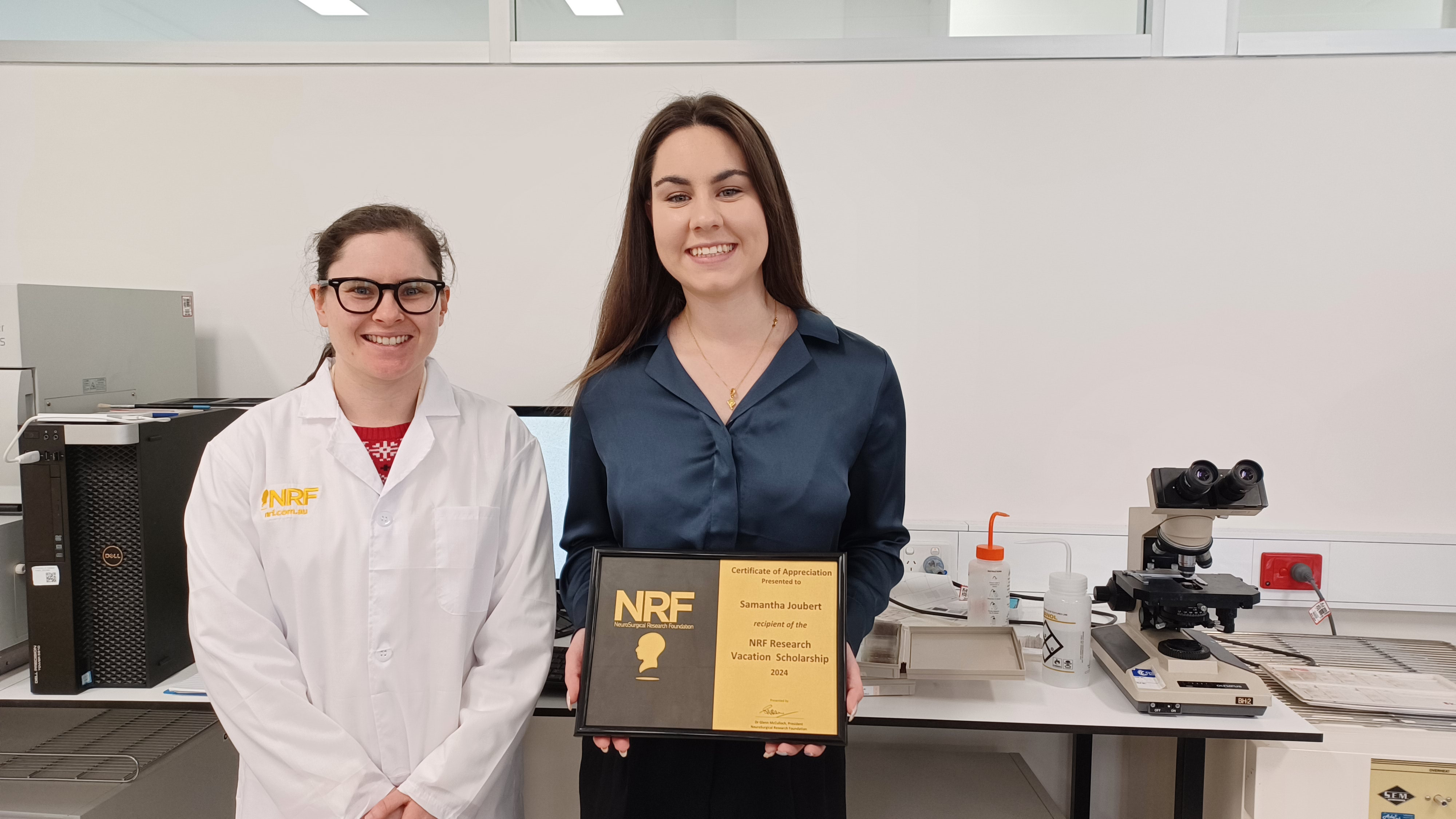
‘’At the University of Adelaide we are lucky to have access to specialised imaging facilities to allow us to conduct high resolution scans that allow us to measure the size changes in many brain regions post-stroke. My project will be analysing the MRI scans generated using these facilities to better visualise the timeline of damage post-stroke".
Supervisor - Dr Rebecca Hood, Translational Neuropathology Laboratory - Stroke




